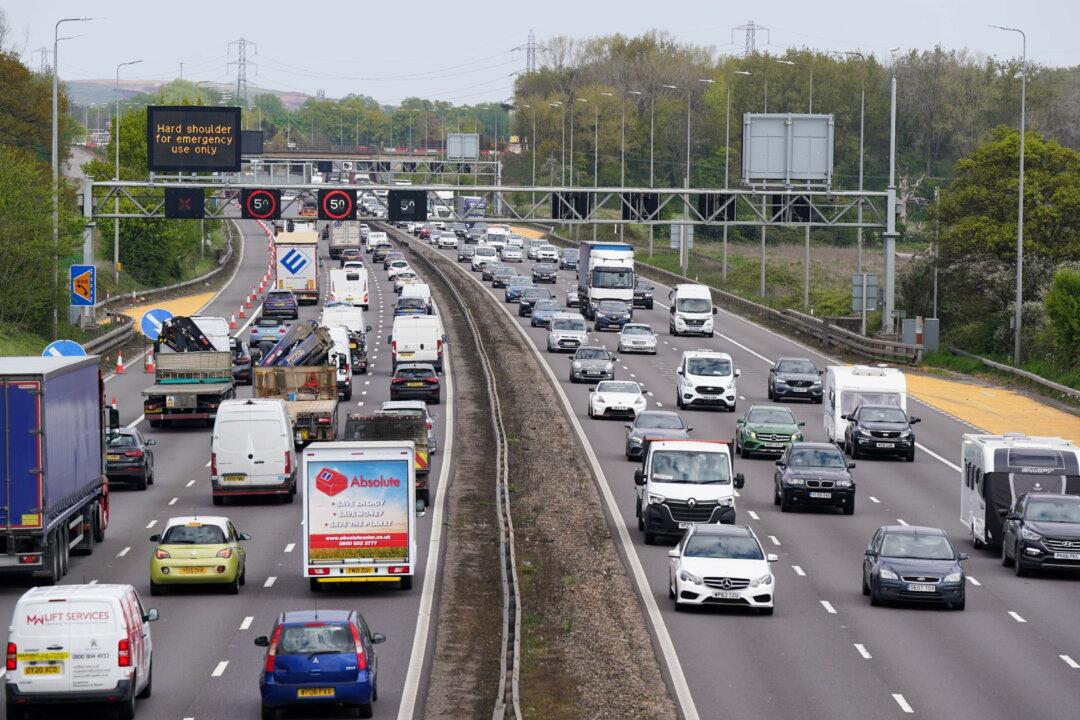British motoring groups have warned drivers to expect a surge in traffic as train passengers switch to road transport during the upcoming rail strikes.
The Rail, Maritime, and Transport Workers’ union (RMT) has stated that it will “shut down” the country’s railway network on June 21, 23, and 25 in what union leaders say will amount to the “biggest rail strike in modern history.”





